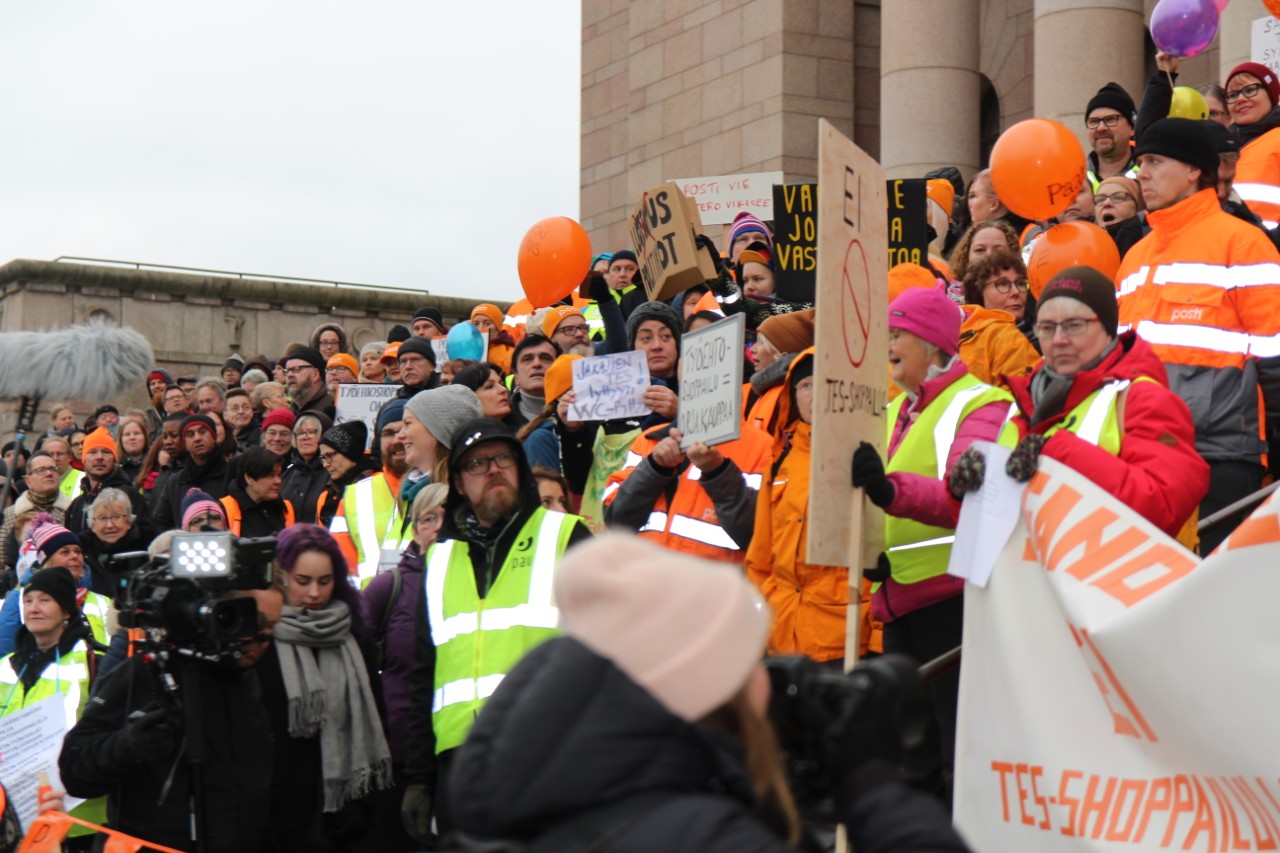January 23, 2020
Solidarity in Finland Leads to Victory in Postal Strike
(This article first appeared in the January/February 2020 issue of the American Postal Worker magazine)
In August 2019, the Finnish government announced it would change the salary structure of 700 of its packaging and e-commerce workers, effectively slashing wages by 30 to 50 percent.
After months of little progress in negotiations with the government, the Finnish Post and Logistics Union (PAU) called a strike against Posti, the government’s mail provider, and nearly 10,000 of the mail operator’s workers walked out in solidarity on Nov. 11. The work stoppage halted all paper mail delivery in the country, as postal workers held the line in support of their 700 brother and sister union members.
After two weeks of the strike with the Finnish government still refusing to offer an acceptable resolution to restore affected employees’ wages, Finnish workers from other industries struck in solidarity with the postal workers. National airline Finnair was forced to cancel almost 300 flights when the country’s airport workers’ union joined the strike. Additionally, the Finnish Seafarers’ Union threatened to stop all passenger and cargo vessels, according to Reuters.
The strong solidarity from workers in other industries across Finland was shared by the general public, with polling from magazine Maaseudun Tulevaisuus showing over 60 percent of Finnish people siding with the postal workers, even as their mail delivery was completely stopped.
The solidarity strikes and public support was overwhelming, and led to a resounding victory for the postal workers. On Nov. 27, the government announced it would not re-classify the 700 workers and would keep them under their current collective bargaining agreement, protecting their wages until at least 2022. The fallout for the government officials approving the initial scheme began swiftly. On Nov. 29, Sirpa Paatero, Finland’s minister in charge of state-owned companies, resigned followed by Prime Minister Antti Rinne who resigned on Nov. 31.
Rinne was replaced by 34-year old Sanna Marin, who became the world’s youngest Prime Minister. After taking office, Marin quickly began advocating for a shorter work week in the country.
This major victory in Finland – achieved by a movement in support of only 700 workers – should be an inspiration for our own fight in the U.S.
“All this high drama in Finland comes as postal workers are under similar attacks in the United States. A postal task force commissioned by President Trump issued a report last year supporting a variety of cuts that mirror the suggestion by Posti management, including scapegoating unions, restricting collective bargaining rights, and reducing pay,” Brian Wakamo, a research analyst at the Institute for Policy Studies, wrote in an op-ed for inequality.org.
“As in Finland, the U.S. public is also strongly supportive of the United States Postal Service. It is consistently rated as the most popular government agency,” Wakamo says. “But if Americans want to ensure that the postal service continues to not only survive, but also thrive, they need to do more to defend it.”
“In this wonderful display of unity, militancy and solidarity, the Finnish workers showed the power of the working class,” summed up President Mark Dimondstein. “Not only did they win the just demands of the postal strike, but their struggle, with the support of the people, brought down the entire anti-worker government, which was then replaced by one which was more pro-worker.”




